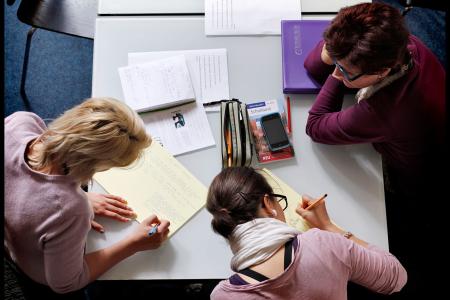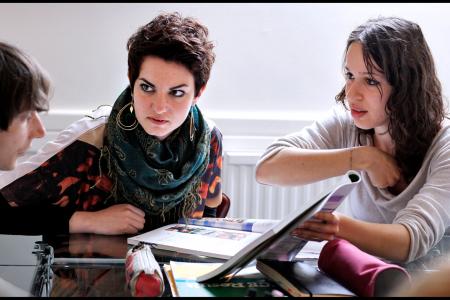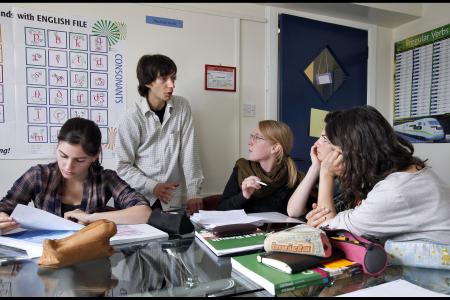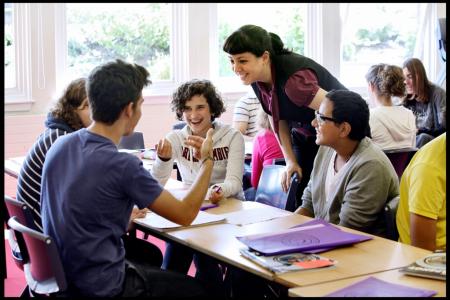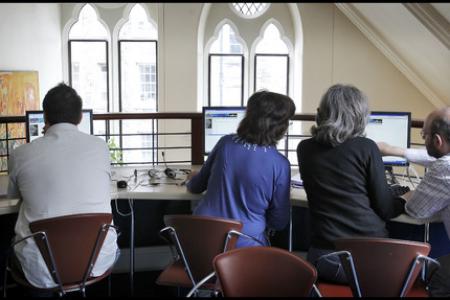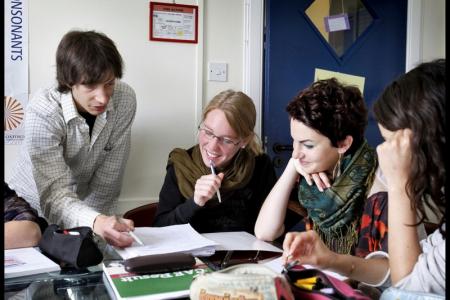Who is the course suitable for?
Non-native secondary and adult teachers engaged in planning and/or delivering ELT programmes
Participants should have a minimum language level corresponding to B2 in the Common European Framework Please note this course is not suitable for primary school teachers
Course aims
- To update your methodology, management and practical teaching techniques and skills
- To examine and reflect on your own approaches and attitudes to teaching and learning
- To become more aware of what you and others do in the classroom
- To discuss and share ideas, problems, methods and techniques with peers from other parts of the world
- To give participants the opportunity to review a range of recent materials that are relevant to their own teaching contexts
Preparation
All participants are required to fill in a Pre-Course questionnaire. It is very important that this is returned at the earliest opportunity as the course is pre-planned based on this. The course content is outlined and discussed on the first morning, and is then adapted as appropriate.
Objectives
Participants will experience a variety of teaching techniques, materials, devices and procedures designed to help students acquire language. There is a focus on current methodologies and practical teaching skills that participants will evaluate for effectiveness, and also discuss ways of adapting these to fit in with different teaching contexts.
Outcomes
The process of reflecting on your own classroom experience and being exposed to a wide range of teaching techniques, as both teachers and learners, will help you to be a more knowledgeable and creative classroom practitioner.
SAMPLE TIMETABLE
Monday
1. Introductions and establishing course
priorities, observation and reflection diary.
2. Teaching and learning: Learner styles.
Tuesday
1. Teaching and learning: An overview of
teaching practices and beliefs. Project work: A rationale.
2. Pronunciation 1: ELF or RP? Establishing learner needs. Pronunciation 2: Using the phonemic chart and practical
ideas for integration.
Wednesday
1. Speaking 1: What constitutes a good
speaking class?
2. Speaking 2: Practical ideas and analysis.
Thursday
1. Vocabulary 1: Presentation of
vocabulary / what’s in a word?
2. Vocabulary 2: Practical ideas and recycling.
Friday
1. Teaching resources: what constitutes a good resource?
2. CALL: Ideas for using the internet, evaluating websites/great sites. Mid session evaluation
Monday
1. Grammar 1: Evaluating presentation techniques.
2. Grammar 2: Techniques and tasks in practice.
Tuesday
1. Listening 1: Techniques and tasks.
2. Teaching unplugged: Dogme in EFL
Wednesday
1. Classroom Management 1: Effective classroom management
2. Classroom Management 2: Physical space / typical classroom problems
Thursday
1. Reading: Reading strategies and potential problems.
2. Writing: Teaching structures.
3. Reading and Writing: Authentic materials for learning.
Friday
1. Mentoring and reflection: Receiving and giving effective feedback from students and colleagues.
2. Closing session: Observation and reflection diaries. Sharing resources, evaluation, reflection and feedback.
Przykładowe zajęcia dodatkowe:

basketball, bilard *, bowling *, cycling *, skating *, sport in park, volleyball, piłka nożna

boat cruises, city tour/walk, concerts, cultural activities, cultural events and festivals, guided city tours, guided museum tours, international evenings, live music / music nights, orientation tour, pub and restaurant evenings, sightseeing with a guide, visits to music festivals, ceilidh *

National Museum, National Portrait Gallery, Scottish Parliament, Loch Ness *, Liverpool *, The Lake District *
* zajęcia dodatkowo płatne
Akredytacje



